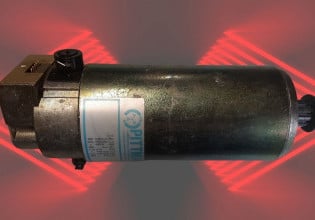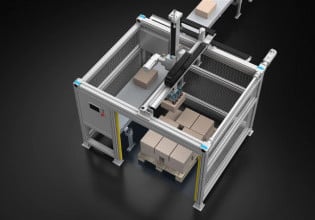R
Rufus
In a message dated 1/14/00 11:46:42 AM Eastern Standard Time,
[email protected] writes:
> Steve Cliff wrote:
> >Much of the bad mouthing that the Microsoft Foundation Classes gets
> >comes from folks who are not using the provided objects in a robust
> >object oriented system design and who may not fully understand object
> >oriented analysis and design. Of course, anther large segment of the
> >bad mouthing that the Microsoft Foundation Classes gets comes from
> >folks who *DO* understand object oriented design and find the classes,
> >--- uh, how shall I say it, --- "less than optimal"
> And then there's the people who just plain hate Microsoft for being
> Microsoft and will bad mouth just about anything with the Microsoft logo.
> (I'm not accusing anyone of being this way, just a general statement - no
> flamefest, please...)
I'm just catching up on my mail so sorry if I'm a little late in the reply.
I just recently have lept into the waters of C++, Visual C++, MFC, Windows CE after having my
prior C-level programming in the 80's, practically before function prototyping.
One of the headaches of MFC is that if you aren't familiar with Windows operation in general and
the API that is encapsulated in the MFC classes, it is a major fog and is quite a humbling experience for someone who is used to catching on to things "like that! <finger snap>"
On the other hand, if you've been doing windows programming in C, then C++, then C++ with MFC, then Visual C++ with its Wizards, programming IS orders of magnitudes quicker, easier, and robust for most "vanilla" projects.
That being said, if you require capabilities that are not in the framework models, well, things get more difficult.
More later...
[email protected] writes:
> Steve Cliff wrote:
> >Much of the bad mouthing that the Microsoft Foundation Classes gets
> >comes from folks who are not using the provided objects in a robust
> >object oriented system design and who may not fully understand object
> >oriented analysis and design. Of course, anther large segment of the
> >bad mouthing that the Microsoft Foundation Classes gets comes from
> >folks who *DO* understand object oriented design and find the classes,
> >--- uh, how shall I say it, --- "less than optimal"
> And then there's the people who just plain hate Microsoft for being
> Microsoft and will bad mouth just about anything with the Microsoft logo.
> (I'm not accusing anyone of being this way, just a general statement - no
> flamefest, please...)
I'm just catching up on my mail so sorry if I'm a little late in the reply.
I just recently have lept into the waters of C++, Visual C++, MFC, Windows CE after having my
prior C-level programming in the 80's, practically before function prototyping.
One of the headaches of MFC is that if you aren't familiar with Windows operation in general and
the API that is encapsulated in the MFC classes, it is a major fog and is quite a humbling experience for someone who is used to catching on to things "like that! <finger snap>"
On the other hand, if you've been doing windows programming in C, then C++, then C++ with MFC, then Visual C++ with its Wizards, programming IS orders of magnitudes quicker, easier, and robust for most "vanilla" projects.
That being said, if you require capabilities that are not in the framework models, well, things get more difficult.
More later...






